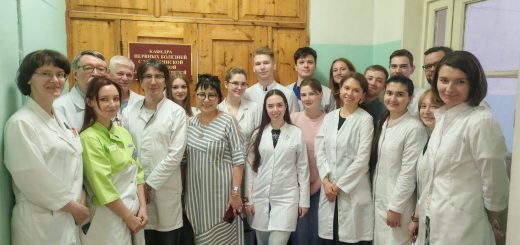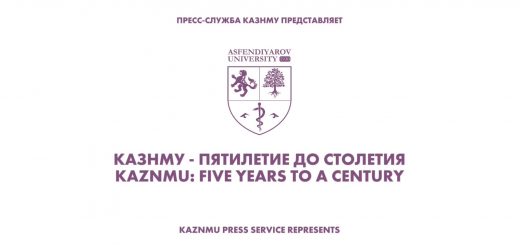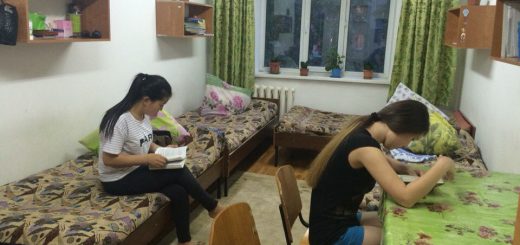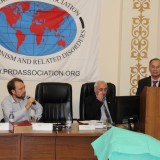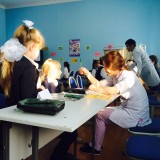Commonwealth of Independent States conference: crossroad of policy, research, education and practice in primary health care
| 23–24 October 2018
Kazakh National Medical University Tole Bi Street 94, Almaty 050000, Kazakhstan |
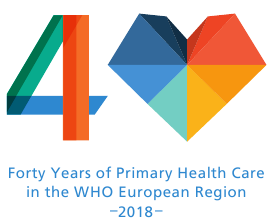 |
Home
Background
A primary health care approach was first put forward 40 years ago in the Declaration of Alma-Ata. Four decades later, the Declaration holds iconic status for having advocated not only for technical changes in the way health services are delivered but also a fundamental change in the approach to health and well-being, linking them to social and economic development. The principles of equitable provision of services, community participation, health workforce development, appropriate use of technology and multisectoral collaboration have since served as a guide for health reforms and define the central tenets of primary health care.
On this 40th anniversary year of the Declaration of Alma-Ata, the world will come together to renew a commitment to strengthening primary health care to achieve universal health coverage and the Sustainable Development Goals. A global conference is set to take place to mark the occasion 25–26 October 2018 in Astana, Kazakhstan.[1] Country delegations invited to the Conference include Ministers of Health, Education and Finance, civil society and key partners and international organizations. A renewed declaration, coined the Astana Declaration on Primary Health Care, will be put forward for discussion and endorsement by country delegates.
In the context of this global event and important milestone in the development of primary health care a scientific pre-conference for the WHO European Region is planned. Held in the birthplace of primary health care – the city of Almaty – and hosted by the Kazakh National Medical University, in partnership with the Ministry of Health of Kazakhstan and WHO European Centre for Primary Health Care, this event aims to explore the linkages between four integral themes to the prestige and continued innovation of primary health care: policy, research, education and practice; celebrating evidence and experience on primary health care where it all began.
Scope of the scientific pre-conference
The scientific pre-conference puts focus on exploring the linkages between four often parallel spheres of work yet all closely interlinked: policy, research, education and practice. In dedicated sessions to each of these themes, the conference aims to tackle pertinent issues on topics including the prestige and competencies of the primary health care workforce, evidence-based decision-making, and innovations in primary health care.
Aims by conference theme
The aims of the core themes are as follows.
- Policy. To highlight key policy considerations on current primary health care policies and future strategic directions and their implications on research, education and practice.
- Research. To share innovative research approaches and discuss the dynamics between research and policy towards evidence-informed excellence in primary health care research.
- Education. To explore progress in developing and enhancing the initial education and continuous development of primary health care professionals taking direction from policy and health needs towards a competent primary health care workforce.
- Practice. To exchange insights from transformations in services delivery from the first-hand accounts of services delivery reformers, translating policies into practice.
Links to the Global Conference on Primary Health Care
The scientific pre-conference will adopt the perspective of primary health care practitioners and the education and research community, putting emphasis on primary health care as a knowledge broker between practice and policies and the continued investment in education and research in the field of primary care in working towards raising the prestige and excellence of primary health care.
Participants
The scientific pre-conference will to bring together a diverse range of international speakers representing policy-makers, the scientific community, civil society and primary health care professionals actively leading primary health care transformations in their communities.
Participation is by open registration. Registration is available through the conference website. All interested parties are encouraged to participate. The profile of participants is expected to include:
- officials from ministries of health of countries in the region;
- local and regional health authorities;
- researchers and academics of medical universities and schools of public health;
- students of medicine, nursing, masters and doctoral degrees;
- health professionals across levels and types of care;
- members of national professional and patient associations;
- members of nongovernmental organizations, research think tanks, other special interest groups;
- representatives of international organizations, UN agencies and bilateral organizations; and
- others with an active interest in the pursuit of excellence in primary health care.
Practical considerations
The event will be in English and Russian language. There is no registration fee. Participants are required to register for the event by completing a registration form on the conference website. A formal invitation letter will be available upon request. The conference venue is the main campus of the Kazakh National Medical University, further details to follow. The conference can accommodate a maximum of 1,000 participants. Financial support for travel and accommodation is available for a limited number of participants. Questions can be addressed to the WHO European Centre for Primary Health Care at [email protected].
[1] For further details on the Global Conference on Primary Health Care visit: http://www.who.int/primary-health/conference-phc/en/
Organizers
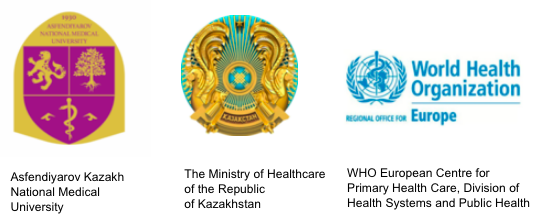
Keynote speakers
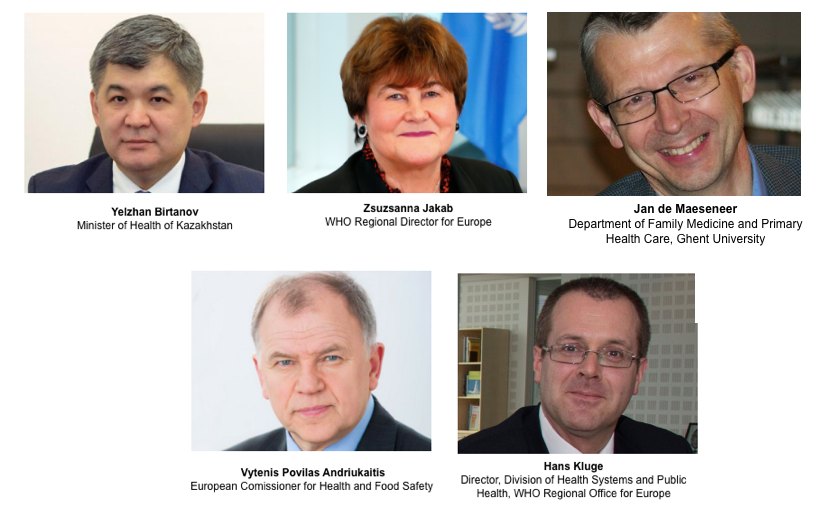
Online Registration



